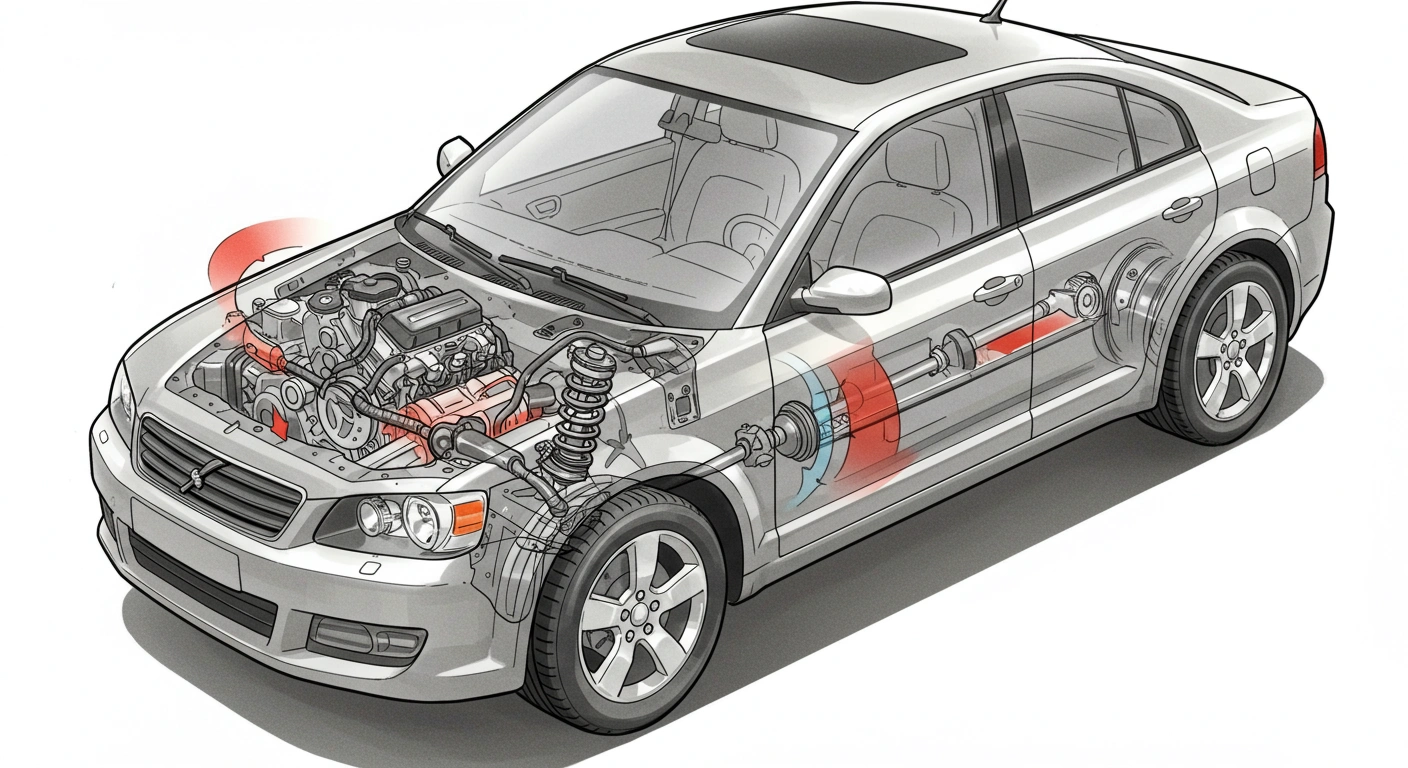08. 28. 2025
Why is My Car Shaking When I Accelerate?

Shaking of a car while accelerating can be very disconcerting and could indicate serious vehicle system problems that require professional attention. Shake may stem from suspension components like ball joints and tie rods, steering issues, warped brake rotors or broken engine mounts – or it may simply be related to fatigued batteries in general.
Bike Brake Problems
Shaking that only occurs when applying the brakes could indicate warped or stuck rotors that need immediate attention from a qualified mechanic in order to avoid further damage and costly repairs.
An automobile that shakes when accelerating could be due to engine issues such as misfiring or damaged spark plugs; replacing these components could restore smoothness and fuel efficiency. Other possible causes may include unbalanced tires, bent axles or damaged inner CV joints.
Engine mounts
Engine mounts are intended to absorb vibrations generated by your engine and keep them from entering your cabin, but over time they can wear out and breakdown, leading to noticeable shakes when you accelerate.
Signs that your engine mounts have worn out are hearing a clunking noise when accelerating, braking, or driving over rough roads. This symptom serves as a clear indicator that they need replacing immediately.
Repairing or replacing motor mounts should always be performed by professionals, as the process involves disassembling your engine and using special tools. By taking your car in for service, you can ensure any potential issues are quickly addressed before further damage occurs to your car.
Faulty spark plugs
An automobile with worn-out spark plugs cannot produce sufficient power for smooth acceleration, leading to reduced engine power and higher fuel consumption.
Once you detect signs that your spark plugs may be malfunctioning, replace them immediately. Pull one out and inspect its tip and electrode; if either has dark buildup on them then they are definitely defective and need to be changed out immediately.
Faulty spark plugs can also lead to engine overheating, leading to failure of both your cooling system and spark plug itself, leading to much quicker wear-and-tear on both components than they should, misfires and broken ignition coils among other issues.
Tire axles
Axles play an essential role in transmitting power from your car’s engine and transmission to its wheels, efficiently turning high rotational forces and torque from both into traction that spins your wheels.
If your vehicle shakes while accelerating it could be due to any number of problems including broken motor mount, damaged inner CV joints, or bent axle. A professional technician should assess and address these issues to ensure safe driving.
An accurate diagnosis of your shaking problem will allow your mechanic to quickly pinpoint and repair its source. While waiting, inspect all spark plugs, brake calipers and tires for wear-and-tear issues as well as try replicating shaking by driving at lower speeds in order to identify what may be causing it.
Brake problems
Experienced acceleration can be alarmingly disconcerting. Ignoring any shake can result in more serious issues for your car’s components such as transmission.
Shaking could also be caused by issues with the brakes, including warped rotors or worn-out pads, as well as suspension or steering system problems like loose struts or shocks, which worsen as you accelerate.
Unconnected or torn vacuum hoses may also contribute to car shake upon acceleration. As with any vehicle component, vacuum hoses must be regularly checked and repaired or replaced as required; professional maintenance will help ensure smooth driving experiences while keeping you safer on the road.
Unbalanced tires
The driveshaft quickly spins as engine power is sent from the engine to either the rear axles and wheels (in rear-wheel drive cars) or front axles and wheels (in front-wheel drive cars). Any bent wheel, damaged tire, stuck brake caliper or unbalanced wheel-tire assembly that causes your car to vibrate during acceleration must be addressed as quickly as possible.
Uneven tires can cause vibrations in your steering wheel and seat, but with regular tire balancing sessions using weighted rims you can prevent these problems from occurring. Also look under your car for signs that wear is starting to show; such as dented driveshafts or grease-stained universal joints indicating wear. Although costly to repair later on, catching issues early is key in helping avoid long-term damage costs.
Loose lug nuts
If your vehicle shakes when accelerating, it is wise to consult an experienced mechanic immediately. A thorough diagnosis will allow for fast and efficient repair as well as avoidance of additional issues down the line.
Regularly checking lug nuts is important. Loose ones could lead to dangerously loose wheels coming loose and uneven tire wear as a result. Plus, loose ones could result in uneven tread wear or other issues with tire tread wear patterns and other factors.
When trying to loosen a lug nut, use a length of pipe that fits with the handle of your wrench or breaker bar for maximum effectiveness. This allows you to turn the nut from a distance instead of trying with only your hands alone.
Conclusion
A car that shakes when you accelerate is more than just an annoyance—it’s a warning sign that something isn’t right. Catching the problem early can save you from expensive repairs and, more importantly, keep you safe on the road. If your car starts to vibrate under acceleration, have it inspected by a qualified mechanic as soon as possible.


No Comment Yet! You can post first response comment.